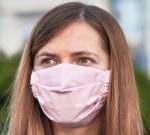
The makeup of bacteria that colonize a man’s penis can help predict the risk of a serious and hard-to-treat vaginal infection in his female partner, new research suggests. Bacterial vaginosis, also known as BV, can lead to problems in pregnancy and make a woman more vulnerable to several sexually transmitted diseases. More than 20% of women worldwide get BV. For this study, researchers tracked 168 couples and found that women whose partner had BV-related bacteria on their penis were more likely to develop BV within a year. “Our results show that penile bacteria can accurately predict new cases of BV in women who did not have BV to begin with, up to six to 12 months in the future,” said lead author Supriya Mehta. “This is important, because it suggests that reducing these bacteria from the penis may reduce BV cases or improve treatment outcomes in women.” Mehta is an associate professor of epidemiology at the University of Illinois at Chicago. The study authors stressed that they are not saying that exposure to certain types of penile bacteria actually causes BV, though that’s possible. But it’s also possible that, over time, or with repeated exposure, penile bacteria may upset the natural balance of microbes in a woman’s vagina, indirectly raising her BV risk. Mehta noted that BV can be related to behaviors other than sex,… read on >


















